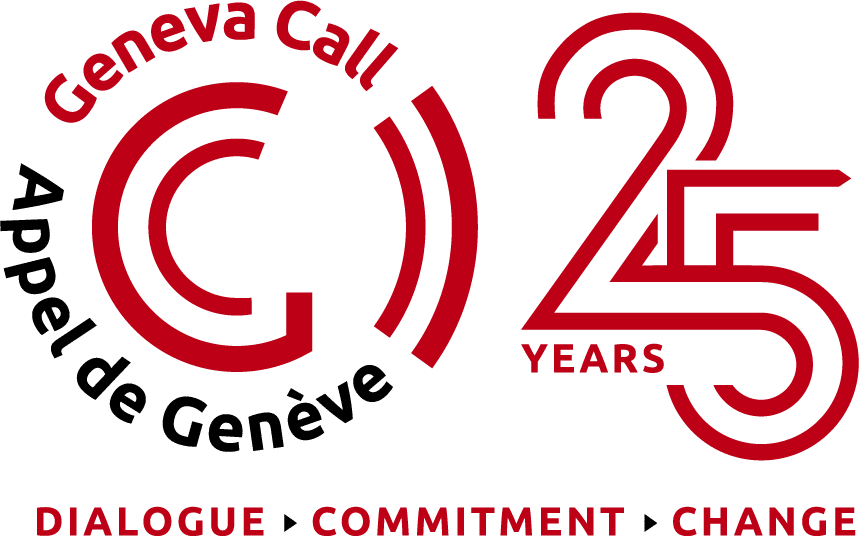DR Congo: interview with two former child soldiers: “Fighting was beyond my capacities”
30 October 2017
Alphonse and Clovis were younger than 15 years old when they joined the combatants of two different armed groups in North Kivu, a region of the Democratic Republic of the Congo. Following humanitarian negotiations with Geneva Call, the commanders of these groups came to realize that using children during military operations was prohibited, and they facilitated their departure from the groups. The boys left their lives as combatants and reintegrated civilian life.
They are now benefitting from the support of the new vocational training centre launched by Geneva Call and operated by GYSPAD (Global Synergy for Peace and Development), Geneva Call’s local partner. There, the boys can learn a trade and prepare for economic independence. Geneva Call’s team met them.
Can you tell us more about the circumstances that led you to join the armed group?
Alphonse: I was with my mum, who was selling flour in a quarry. Several combatants came and wanted to take her flour without paying. When she refused, they threatened to take her kid, and in the end, they forced me to follow them.
Clovis: I joined the armed group on a voluntary basis. My family was very poor, and we had no money. I didn’t have the possibility to go to school. Members of the group made promises that they never fulfilled, for example, that they would give me food and send me to school.
How long did you stay in the armed group?
Alphonse: After one year, my older brother also joined the group. With his help, I escaped. I had to hide, as I had no leaving certificate [Editor’s note: the document given by an armed group when a combatant officially leaves its ranks]. At any time, they could have found me and forced me to come back. They finally found me two years later, and I stayed with the group for two more years.
Clovis: I stayed within the group for a year. I saw combat from close up, and living conditions were tough. I left the group in May 2017. Since then, I haven’t met with the other children who were also in the group, but some of them were very young. I now want to be a hair-dresser, and I live at my aunt’s place since my mother lives in Kinshasa. Even if they try to persuade me, I will not go back to this group as life is too tough there.
How is life within the group?
Alphonse: I saw many other young boys from the group die during combat. After a while, a commander realized that I was very courageous and took me under his protection. From this moment on, I was better treated. After two years, the commander was killed and I decided to leave, as I was left without protection. I went back to see my family and school, and I now live with my grandmother.
Clovis: I wasn’t eating every day, even though commanders were. We were sleeping outside. I was often given the role of nurse. Fighting was beyond me. I also saw the leaflets that Geneva Call was handing out to the group’s fighters, but I wasn’t allowed to read them.
Geneva Call has been working in North Kivu since 2014 to improve the protection of the civilian population. The organization is engaged in dialogues with five armed groups on respecting international humanitarian law and on the prohibition on recruiting children below 18. The organization also works with others actors active in this field, particularly UNICEF and MONUSCO (Department of Child Protection), that can take care of some the children that have left armed groups.

